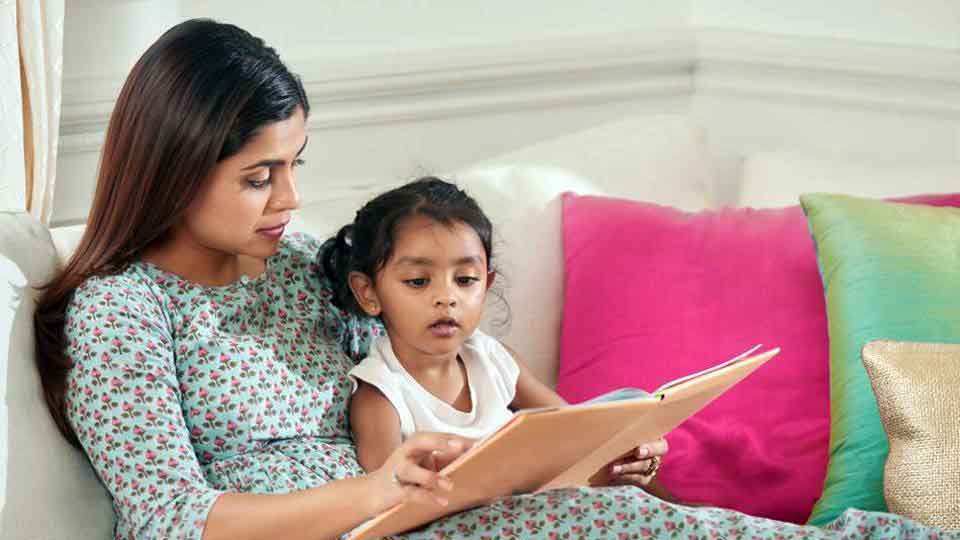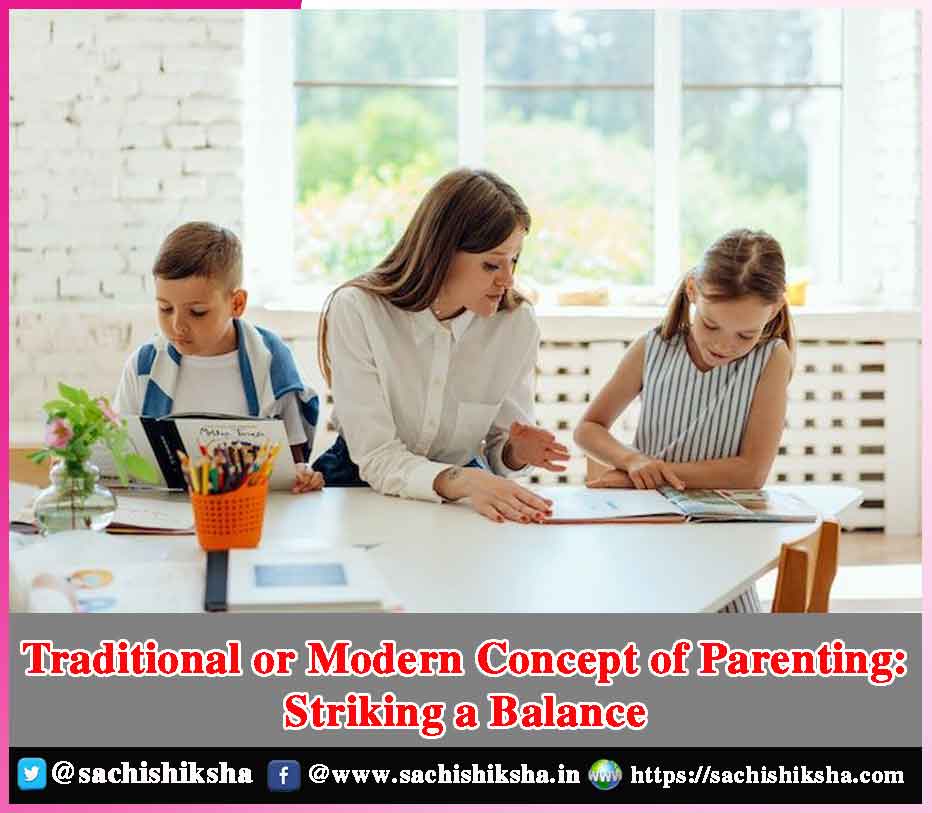Traditional or Modern Concept of Parenting: Striking a Balance
Introduction: Parenting is a timeless endeavor, but the ways in which parents approach it have evolved over the years. Traditional and modern concepts of parenting represent two distinct approaches to raising children,
each with its unique set of values and practices. While neither approach is inherently superior, understanding the strengths and weaknesses of each can help parents strike a balance that best suits their family’s needs.
Also Read:
- Positive Parenting During the Pandemic
- Good Parenting Tips: Effective Ways To Improve Parenting Skills
- New Parents Learning the Parenting Business
- Say No & Be Happy
Table of Contents
Traditional Parenting

- Respect for Authority: In traditional parenting, there is a strong emphasis on obeying authority figures, such as parents and elders. Children are expected to listen to their parents without questioning their decisions.
- Discipline and Structure: Traditional parents believe in setting strict rules and boundaries. They view discipline as a way to instill moral values and ensure that children grow up with a strong sense of right and wrong.
- Gender Roles: Traditional parenting often adheres to traditional gender roles, with mothers primarily responsible for caregiving and fathers as providers. This division of roles is seen as essential for maintaining family harmony.
- Cultural and Religious Values: Traditional parenting often incorporates cultural and religious practices, which guide the upbringing of children. These values play a significant role in shaping a child’s identity.
- Family as the Center: Traditional families tend to prioritize the family unit as the core of society. They encourage close-knit family relationships and multigenerational living arrangements.
Modern Parenting
Modern parenting, on the other hand, has evolved with societal changes and is often characterized by a more flexible and individualized approach. It places a greater emphasis on open communication, emotional intelligence, and adapting to the needs of each child. Here are some key aspects of modern parenting:
- Communication and Emotional Intelligence: Modern parents encourage open and honest communication with their children. They prioritize emotional intelligence, helping children understand and express their feelings.
- Flexibility and Adaptability: Modern parenting values flexibility and adaptability. Parents are more willing to adjust their approach based on the unique needs and personalities of their children.
- Equal Gender Roles: Modern parenting challenges traditional gender roles, promoting equality in caregiving and household responsibilities between parents, regardless of gender.
- Child-Centered Approach: The modern approach often revolves around the child’s individuality and interests. Parents support their children’s passions and encourage them to explore their own paths.
- Technology Integration: Modern parents often incorporate technology into their parenting, using educational apps and online resources to enhance their child’s learning experience.
The Balancing Act
While traditional and modern parenting approaches may seem contradictory, there is merit in striking a balance that incorporates the strengths of both. Here are some ways parents can strike a balance:
- Respect and Discipline: Incorporate elements of respect for authority and discipline from traditional parenting while allowing room for open communication and negotiation, which are hallmarks of modern parenting.
- Gender Equality: Promote gender equality by ensuring that both parents are actively involved in caregiving and household chores, breaking away from traditional gender roles.
- Cultural Values: Embrace cultural and religious values while also allowing children to explore and appreciate diverse perspectives and experiences, fostering cultural awareness and acceptance.
- Family Bonds: Strengthen family bonds while recognizing the importance of individuality and personal growth. Encourage children to pursue their interests within the context of a supportive family environment.
- Technology Use: Integrate technology responsibly by balancing screen time with physical activities and face-to-face interactions to promote holistic child development.
Challenges and Benefits
Both traditional and modern parenting approaches come with their own set of challenges and benefits.
Traditional Parenting Challenges:
- Rigidity: Traditional parenting can be rigid and resistant to change, which may stifle a child’s individuality and creativity.
- Communication Barriers: The emphasis on authority and discipline in traditional parenting may create communication barriers between parents and children.
- Gender Stereotypes: Traditional gender roles may limit opportunities and self-expression for children, particularly those who do not conform to these roles.
Traditional Parenting Benefits:
- Stability: Traditional parenting can provide a stable and structured environment, which can be reassuring for children.
- Cultural Identity: It helps children maintain a strong connection to their cultural and religious heritage.
- Respect for Elders: Traditional parenting instills respect for authority and elders, which can be seen as a valuable trait.
Modern Parenting Challenges:
- Lack of Boundaries: Overly permissive modern parenting may result in a lack of boundaries, potentially leading to behavioral issues in children.
- Tech Overload: Overreliance on technology can lead to screen addiction and limited physical activity.
- Pressure to Perform: The focus on individuality and achievement can create pressure for children to excel in various areas.
Modern Parenting Benefits:
- Emotional Intelligence: Modern parenting fosters emotional intelligence and healthy communication skills, which can benefit children in various aspects of life.
- Flexibility: It allows for flexibility and adaptability to meet the unique needs of each child.
- Gender Equality:Modern parenting promotes gender equality and empowers children to explore a wide range of interests and pursuits.
Conclusion:
In the debate between traditional and modern parenting, there is no one-size-fits-all answer. Both approaches have their merits and limitations, and the best approach may vary from one family to another.
Instead of adhering strictly to one concept, parents can benefit from combining elements of both traditional and modern parenting to create a balanced and effective approach that suits their family’s values and the unique needs of their children. Ultimately, successful parenting is about creating a loving, nurturing, and supportive environment in which children can thrive and grow into confident and responsible individuals.













































